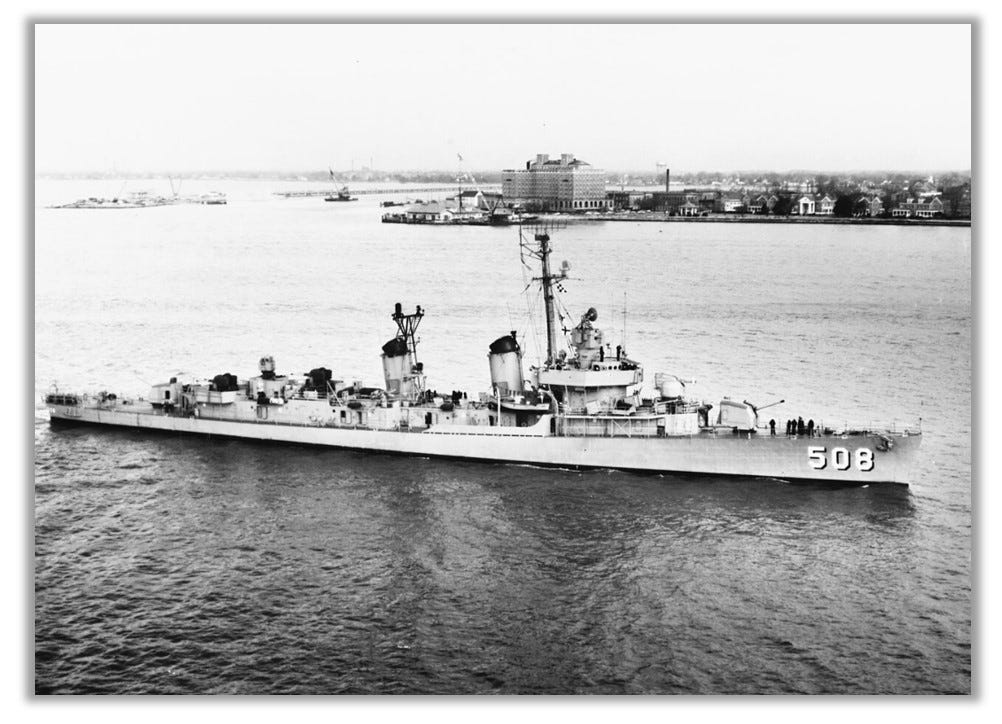TDIH: The Man Who Saved the World
“Not only the most dangerous moment of the Cold War,” historian Arthur M. Schlesinger, Jr. concludes. “It was the most dangerous moment in human history.”
On this day in 1962, the United States Navy spots a Russian submarine near Bermuda. What followed was “not only the most dangerous moment of the Cold War,” historian Arthur M. Schlesinger, Jr. concludes. “It was the most dangerous moment in human history.”
Russia and America had been teetering on the brink of war for weeks, ever since Soviet missile sites were discovered in Cuba. The United States responded with a naval blockade, and the Soviets sent submarines.
Americans couldn’t then know it, but four of these submarines were carrying nuclear-tipped torpedoes. Worse, the Soviet captains were authorized to use them.
One of these submarines, B-59, was spotted by the U.S. Navy near Bermuda on October 25. The Soviet sub tried to outrun American tracking efforts, but to no avail. By October 27, those inside were struggling. The atmosphere had become stuffy; carbon dioxide levels were getting too high. They hadn’t been sleeping well. They felt hunted.
The tension surely affected what happened next.
At roughly 5:00 p.m., U.S. Navy destroyers began dropping hand grenades and practice depth charges. Moscow had already been notified that such tactics would be used to encourage submarines to surface and identify themselves. But the vibrations were loud. Were they practice rounds or real ones? The Soviet submariners were not sure. Confusing matters further, the submarine could not make radio contact with Moscow unless it surfaced.
After a few hours, something must have hit a little too close.
“The Americans hit us with something stronger than the grenades,” Lt. Vadim Orlov described, “apparently with a practice depth bomb. We thought—that’s it—the end. . . . [Soviet Captain Valentin Savitsky] summoned the officer who was assigned to the nuclear torpedo and ordered him to assemble it to battle readiness.”
Savitsky was worried. He’d been out of radio contact for two days. Had a war started in the meantime? In his “totally exhausted” state, Savitsky feared so. “We’re gonna blast them now!” Savitsky yelled, according to Orlov. “We will die, but we will sink them all—we will not become the shame of the fleet.”
Fortunately, Savitsky couldn’t launch the torpedo alone. He needed the assent of two other officers. One was Vasili Arkhipov, the officer commanding the flotilla; he happened to be traveling with B-59. Orlov credits Arkhipov with being the cooler head that stopped the nuclear torpedo.
For years, many thought that Arkhipov also talked Savitsky into surfacing at this juncture, but new information has recently come to light, courtesy of historian Serhii Plokhy. He found more accounts of the evening from two B-59 officers, Viktor Mikhailov and Anatoly Leonenko.
It turns out that B-59 surfaced for a pragmatic reason: Its batteries were running low.
As the sub emerged, one officer felt that he “almost fell into the water from the sensation of gulping down so much fresh sea air,” but Mikhailov recalled that an American plane “flew down the length of the submarine and, illuminating it with their searchlights, fired tracer bullets ahead of it.”
It was a mistaken impression. The plane was actually dropping flares to light the area for pictures. Nevertheless, Savitsky thought he was under attack. Leonenko remembered him shouting: “Emergency dive! Prepare torpedo tubes 1 and 2 for firing!”
Tube 1 contained the nuke.
Arkhipov received a little help in stopping Savitsky a second time. He saw a message flashed in Morse code from USS Cony. The American captain was signaling his apology for the plane’s apparent aggressiveness.
“[B-59] is surrounded by U.S. ships,” an American deck log summarized, “and illuminated with bright light. One of the destroyers has a band playing jazz. Savitsky understands that they were not in a state of war.”
It had been a close call.
Sources can always be found on my website, here.





I had never heard this story until today. As a school age child, I assume much of the day's news went straight over my head as I played outdoors until the street lights came on. Then there was also the "protective" band of secrecy, keeping away so much news from the populace. What a close call we all had! God's hand was definitely in this, holding back the winds of strife.
Now I know where Tom Clancy got his idea for “ The Hunt for Red October !” Imagine if cooler heads didn’t prevail there might be no world today . Thank you for a story with a great outcome for all .